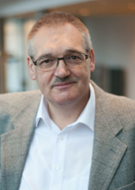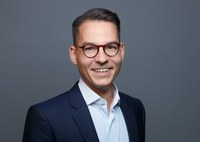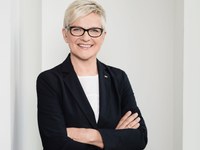ONLINE Future Mobility Prospects
- Date:
- Th, 23.11.2023 19:00 – Th, 23.11.2023 20:30
- Address:
- Online
- Registration required
- Language:
- English
- Event partner:
- IOP
- External Link:
- Info at IOP
Description
Mobility of the future is an extraordinarily complex and multi-layered topic, impacting society as a whole, from individuals in their daily routines to the transportation and supporting infrastructures of global goods and supply chains.
For our panel discussion, we can therefore only pick out a few points as examples. On the one hand, considerations on future traffic concepts in urban areas will be explained and discussed using the example of London. On the other hand, the question arises of completely new approaches for bridging greater distances in passenger and freight traffic while simultaneously reducing environmental pollution by connecting mobility perspectives with sustainability and the green economy. This will be discussed using the example of the Hyperloop Project and its connection to existing infrastructures.
All these areas also offer interesting fields of work for physicists in the development of the fundamentals of the new techniques and technologies required for this or in the modelling and realization of the process chains.
With Walter Neu as head of the German Hyperloop project, Marcus Ebert as a specialist for infrastructures and Giles Perkins as head of profession and future mobility, we will learn from subject experts from both Germany and Britain, who will give us an insight into these exciting topics and answer questions. The discussion will be moderated by Barbara Lenz, who, as a transport researcher and mobility expert, will also contribute her broad experience to the discussion.
Programme:
- Statements of the Panellists:
- Urban mobility (Giles Perkins)
- Hyperloop: Operation and Intermodal Connection(Marcus Ebert)
- Hyperloop: Physics and Technology (Walter Neu)
- Discussion among the Panellists
- Discussion with the Audience
Panellists:

Picture: IHT Emden
Walter Neu is Professor of Laser Technology, University of Applied Sciences Emden/Leer and speaker of the DPG Working Group on Universities of Applied Sciences. He is director of the Institute for Laser and Optics in Emden, and Co-Founder and member of steering committee of Research network “Medical technology”. He is also heading the Institute of Hyperloop Technology (IHT). Walter Neu received his Ph.D. degree in Physics from the University of Mainz being a research fellow at CERN/Geneva.

Picture: Private
Following his passion for the development of infrastructure projects, Marcus Ebert worked in several leading roles within Deutsche Bahn and its operating subsidiaries. Most recently he headed the commercial vertical of Deutsche Bahn’s Joint Venture ‘Etihad Rail DB’ in the United Arab Emirates.
Building on his background as German lawyer, this journey allowed him to build a comprehensive portfolio in rail project development, strategic infrastructure privatization (PPP) and integrated mobility. Marcus Ebert will approach Hyperloop technology from a commercial perspective and will outline what will have to come together to make Hyperloop a reality – aside from ist technical readiness.
Giles Perkins
Giles Perkins leads WSPs Future Mobility team in the UK and has over 32 years’ experience in the futures, transportation planning, digital and intelligent transport sectors. He has worked in the public and private sectors as a senior client and director level consultant and has led major projects across all modes.He is a recognised expert in the field of future mobility / transport and Zero Emission Mobility, and with regard to the challenges facing all modes of transport resulting from disruptors, both within the transportation realm and wider socio-economic changes which influence it. Giles Perkins is also the Programme Director for the ongoing DfT funded ADEPT Live Labs programme.
Moderation:

Picture: DLR
Barbara Lenz was director of the DLR Institute for Transport Research in Berlin and Professor of Transport Geography at Humboldt University. Her main research areas within social science mobility and transport research include the transformation of the transport sector, acceptance and effects of automated driving, new mobility concepts as well as mobility in the context of developing countries. She has been active in numerous committees: among other things, she headed working group 2 “Alternative drive systems and fuels” of the National Platform Future of Mobility, she was a member of the EU Mission Board for “Climate neutral and smart cities”, belongs to the Advisory Board Science of the Climate Council of the City of Vienna and is a member of the Climate Advisory Board of the Free and Hanseatic City of Hamburg.

